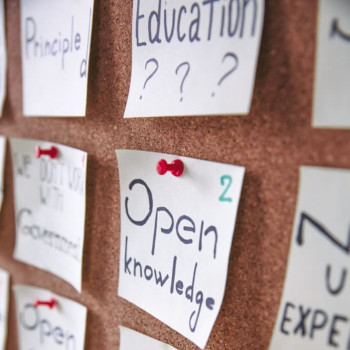Events
Scholarship Exchange Webinar

Date: Wednesday 21 February 2024 12:00 - 13:00
Location: Online
The 8th Scholarship Exchange Webinar, organised in collaboration between the SEMS Centre for Research in Engineering and Materials Education and the EECS Scholarship Centre, will take place between 12-1 pm on Wednesday, 21st February. Details of speakers are as follows:
Speaker 1: Dr Rehan Shah, Lecturer (Assistant Professor) in Mathematics and Engineering Education, School of Engineering and Materials Science, Queen Mary University of London
Title: Teaching Ethics and Sustainability in Mathematics? You Must Be Joking!
Abstract: In recent years it has become increasingly crucial and all the more pressing, that mathematicians, engineers and scientists should be made aware of key discipline-specific ethics and sustainability issues, in order to be equipped with the knowledge and skills to realise the external impact of their work. This extends even to those more highly trained, ranging from graduate students to academic staff. But what should we be teaching our students and how should we go about doing it? In this webinar talk, I will discuss the need for inclusion of such ethical and environmental aspects to diversify mathematics-based STEM curricula, present examples of tutorial-style exercise problems that I have used and developed to incorporate within my own modules and reflect on how other lecturers and education practitioners can also implement these within their teaching.
Speaker 2: Dr Gloria Molinero, Coordinator and Lecturer for Language and Academic Skills for Science and Engineering at the QM School of Hainan
Title: Joint Delivery and Collaborations in TNHE: A Phenomenological Analysis
Abstract: Transnational higher education (TNHE) is increasingly experiencing collaborations between faculty and specialists in English for academic purposes (EAP). Issues concerning knowledge transfer, second language practice and acquisition, and subject learning challenges at tertiary levels are the main concerns initiating Joint Delivery (JD) programmes. This session reports on research done in China exploring the collaborative experiences of EAP specialists with a reflective standpoint working with specialised faculty in various fields. The analysis exhibits three primary collaborative practices with different levels of engagement and teaching tactics: assisted delivery, co-teaching, and lecture-seminar delivery. Friend and Cook’s (2014) framework evaluates these collaborations, providing insights on approaches for optimum and organic collaborations based on co-designing, openness and adaptation, mutual learning, and a share of outcomes and responsibilities. Joint Delivery enriches practice, student experience, and the collaborative standards for TNHE.
Click here to join the meeting
| People: | |
| Research Centre: |

